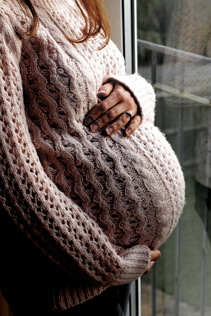
What is surrogacy?

There are a two main ways that surrogacy can work:
- Full surrogacy (or Host or Gestational surrogacy) involves the implantation of an embryo created using either the sperm and egg of the intended parents or a donor or donors.
- Partial surrogacy (or traditional surrogacy) involves sperm from the intended father and an egg from the surrogate mother. Fertilization is normally achieved by artificial insemination.
After the birth of the child it is common practice for the baby to be adopted formally by the couple so that they gain legal standing as the child’s parents.
Surrogacy for profit is not legal in the UK (or Australia), although you can do it altruistically and receive expenses from the couple who wish to have a baby. This regulation has led many couples to go abroad to countries where the law is different (such as the USA and Thailand).
What are the issues?

On the flip side, the surrogate may want to keep the baby and not allow it to be adopted by the couple - this can be mitigated against by having a very clear contract drawn up in advance, however this would not negate the emotional turmoil a surrogate mother might go through.
The couple may want to have the baby aborted if they discover that it has a disease such as Down’s or Spina Bifida - do they have the right to force the surrogate to undergo the procedure? Is the unborn foetus essentially their property if they have signed contracts and contributed their own genetic material? This leads us to consider whether we want to have the unborn commercialised at all - can a price be realistically be put on a human life?
Is it ethical for a relatively wealthy couple to travel to a less developed nation (as in the Baby Gammy case) to seek a surrogate? Is this a form of human exploitation? Or should we accept that we live in a global environment and this extends to having a child?
As the child grows up, do they have a right to be able to contact the surrogate mother, especially if it was a traditional surrogacy and they have the Surrogate’s genes? Does the surrogate mother have the right to contact the child?
Many will have assumed until now that the “couple” are heterosexual, a man and a woman. What if they are gay or lesbian? Should they be allowed to have a surrogate child? Given that they are allowed to marry in the UK could they be stopped from having a child in this way?
Finally, we might consider if couples have a moral prerogative to adopt children that are already alive and unwanted, rather than creating a whole new life. The urge to have a child that is genetically related to you is a very strong one, but is it more ethical to adopt existing children?

These are just a few of the issues - I am sure that many of them will be discussed in tomorrow's Moral Maze on BBC R4 at 20.00 BST. (http://www.bbc.co.uk/programmes/b04cffpz)

 RSS Feed
RSS Feed
